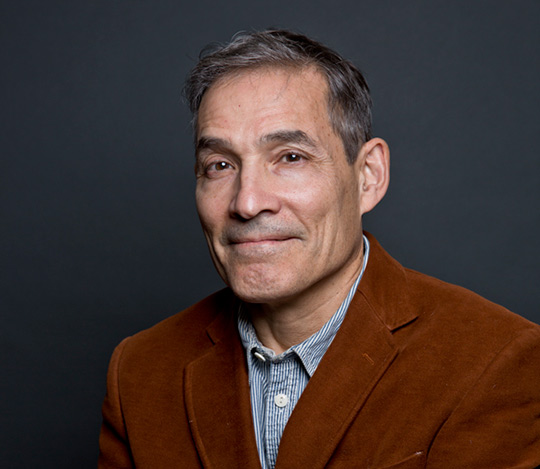George A. Bonanno, Professor of Clinical Psychology and Director of Teachers College’s Resilience Center for Veterans and Families, is receiving the 2019 James McKeen Cattell Award, given by the Association for Psychological Science (APS), at the APS annual meeting in Washington D.C., which starts this Thursday, May 23rd and runs through Sunday, May 26th.
The Cattell Award recognizes APS members for a lifetime of outstanding contributions to the area of applied psychological research addressing a critical problem in society at large. Past recipients of the award, considered one of the most prestigious given to psychologists, include two Teachers College faculty members – Jeanne Brooks-Gunn and the late Morton Deutsch – as well as Uri Bronfenbrenner, Fred S. Keller, Julian Stanley, Carol Dweck, Susan T. Fiske, Albert Bandura and Aaron T. Beck.

STRONGER THAN WE REALIZED Bonanno has overturned conventional wisdom about human resilience to loss and trauma.
In announcing the award, APS said it was honoring Bonanno for his application of “rigorous scientific research to the study of trauma” and for championing “the concept of resilience in the fields of loss and grief.” Bonanno, the author of The Other Side of Sadness: What the New Science of Bereavement Tells Us About Life After Loss (Basic Books 2010), has “painted a new, more varied and positive picture of sadness and loss than traditional paradigms had theretofore presented,” the organization said, and “worked to trace the long-term psychological health outcomes of loss and trauma.”
In a groundbreaking study of some 2,700 New Yorkers after the 9/11 terrorist attacks, Bonanno and other researchers found that more than two-thirds of those interviewed showed virtually no sign of post-traumatic stress disorder (PTSD). Across racial, ethnic and socioeconomic lines, the prevalence of resilience was more than 50 percent and never fell below one-third, even in people who had been inside the towers, sustained physical injury or seen friends die. Overturning conventional wisdom, Bonanno found that psychological recovery for the majority of those in the study occurred almost immediately – or, as he has frequently put it: “The resilient response predominates. We’re stronger than we realized.”
In a groundbreaking study of some 2,700 New Yorkers after the 9/11 terrorist attacks, Bonanno and other researchers found that more than two-thirds of those interviewed showed virtually no sign of post-traumatic stress disorder.
Bonanno also has amassed evidence that emotional resilience is strongly linked to what he calls “flexibility” – the ability to adapt emotionally to changing circumstances. And more recently he and his TC doctoral student, Meaghan Mobbs, a former U.S. Army Captain, have found that the primary issue for most military veterans is not post-traumatic stress disorder, but rather the “transition stress” of adjusting to civilian life.
James McKeen Cattell (1860-1944) was the first professor of psychology in the United States. Described by The New York Times as “the dean of American science,” Cattell helped elevate the scientific credibility of psychology as a field through his founding and editorship of leading journals such as Science and through his own use of experimental methods, mental testing, and application of psychology to education, business, industry, and advertising. His opposition to World War I, which prompted his academic dismissal, led to the institution of tenure at many American universities.
This year's APS meeting is being chaired by Barbara Tversky, TC Professor of Psychology & Education, who is the organization's president. [Read a story about the meeting.]